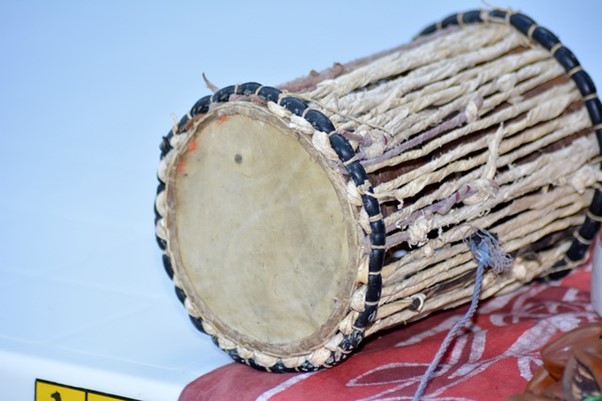Yorùbá is among the most significant ethnic groupings in Africa south of the Sahara Desert. They are many different people connected by a shared language, past, and culture instead of being one cohesive group. The Yorùbá ethnic group dominates Western Nigeria. Based on Yorùbá mythology, a hero named Odua or Oduduwa is the ancestor of all Yorùbá people. There are currently more than fifty people who identify as Odua’s descendants.
Although English is Nigeria’s primary language, Yorùbá, Igbo, and Hausa are quasi-official dialects acting as lingua franca for the country’s 400 other official languages. It isn’t the dominant language in southwest Nigeria, where most Yorùbá speakers are. However, Yorùbá is spoken in state administration, print, and digital media throughout all educational levels.
For knowledgeable Yorùbá-English bilinguals, shifting between Yorùbá and English is a lifestyle choice. The language is mainly used in official settings, including village or tribal gatherings and in homes. However, many speak standard English in a professional or official environment.
Likewise, they speak Yoruglish, a creolized version of English, on informal occasions. This is a combination of Yorùbá and English vocabulary as well as grammar.
History and Origins of the Yorùbá Language
Yorùbá is a primary language spoken in Nigeria and other West African countries, such as Benin and Togo. It is a tonal dialect, which implies that the pitch of a word can change its meaning.
The exact origins of the Yorùbá language are not known. Still, it is believed to have developed around the 7th century CE as part of the expansion of the Yorùbá people from their homeland in present-day Nigeria. The Yorùbá language is also part of the Niger-Congo language family, one of the world’s most prominent languages.
Furthermore, the Yorùbá language has a rich literary tradition, with many important works of literature written in Yorùbá. In addition, the Yorùbá people have a long history of oral storytelling passed down through generations. Many Yorùbá writers and poets continue to produce meaningful works in the language.
The Yorùbá language has also played an essential role in developing African Christianity and Islam. Christian and Islamic texts have been translated into Yorùbá and used in religious ceremonies and practices.
In Nigeria, the Yorùbá language is one of the three major languages used in education, along with Hausa and Igbo. It is also used in the media and government and is recognized as one of the national languages of Nigeria.
Overall, the Yorùbá language is an integral part of the cultural heritage of the Yorùbá people and a significant language in West Africa.
Yorùbá Pronunciation and Alphabet
Yorùbá alphabet comprises two Latin alphabets, the one spoken in Nigeria and the other in Benin. The 25 Nigerian Yorùbá alphabet letters are C, Q, V, X, and Z, including E, O, S, and Gb.
Nonetheless, a number of the consonants that were left out, such as V, Z, and other digraphs, can be found in various dialects of Yorùbá (including ch, gh, and gw). Moreover, two additional vowels that sound like I and U are prevalent in major Yorùbá languages. Oddly, the letter P typically transliterates [kp], only becoming [p] in specific contexts such as onomatopoeia.
Similarly, the Beninese alphabet comprises the letters Ɛ and Ɔ and initially included C.
Basic Grammar and Sentence Structure
Some of the basic grammar and sentence structure guidelines of Yorùbá include:
- Nouns
Nouns in the Yorùbá language lack gender, numeral, or case markings. No definite nor indefinite words exist. The singular and plural meaning of a word depends on its linguistic situation. Likewise, the word order indicates the purpose of nouns and pronouns in phrases.
- Verbs
The time and aspect of Yorùbá verbs are defined. Particles between the topic and the verb convey tense and mood.
- Vocabulary
Derivation and repetition of words are Yorùbá’s main factors in word development. Moreover, Yorùbá vocabulary has gained from borrowings from the nearby Hausa language. There are two categories of foreign words in Hausa: the ones that are of Hausa heritage, along with those that are Hausa borrowings from Arabic.
- Writing
With the help of the digraph GB and a few other diacritics, like a dot underneath the characters E, O, and S, the Latin alphabet is modified to reflect the sounds of Yorùbá. There’s no purpose for the Latin letters C, Q, V, X, or Z. Besides, accent markings that are acute or grave indicate high or low tones, accordingly.
Examples of Common Yorùbá Words:
- Ẹ káàárọ̀ – good morning
- Ẹ káàsán – good afternoon
- Ó dàbọ̀ – goodbye
- Ẹ ṣé – Thank you
- Ẹ Jọ̀ọ́ – Please
- Bẹ́ẹ̀ ni – Yes
- Rárá – No
- Dúró – Wait/stop
- Wá – Come
- Orúkọ mi ni – My name is
- Kí l’orúkọ ẹ? – What is your name
Benefits of learning the Yorùbá language
There are tons of compelling reasons to pick up a new language. You can converse with other individuals. You can also gain a new perspective or a better knowledge of different cultures as a result.
Other significant benefits of learning the Yorùbá language include the following:
- You become smarter
- Enhances academic performance
- It makes working and professional life simpler
- Increases your social and interpersonal skills
- More comprehensive access to learning and knowledge is made possible
Conclusion
The Yorùbá dialect is distinctive and widely spoken in Tobago, Cuba, the Republic of Benin, and West Africa. Therefore, early exposure to the Yorùbá culture and language enables kids to discover their abilities. It also equips them with a diversified study of life and provides a solid basis for future learning.
Do you want to learn the Yorùbá Language?
Cee Koko’s books and videos are a tremendous language-learning resource for anyone wanting to learn popular African languages and dialects. Visit our shop to purchase your copy of the Yorùbá Interactive Book.


